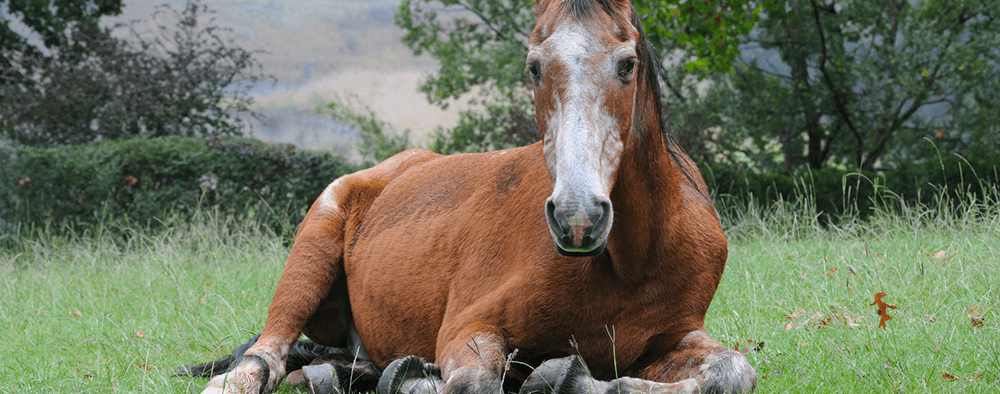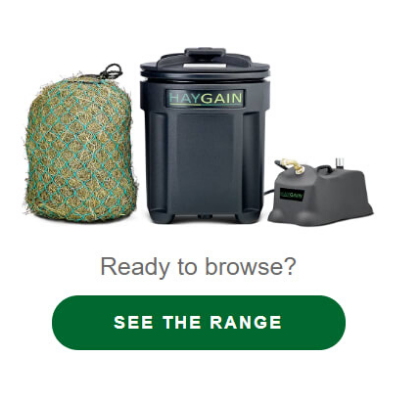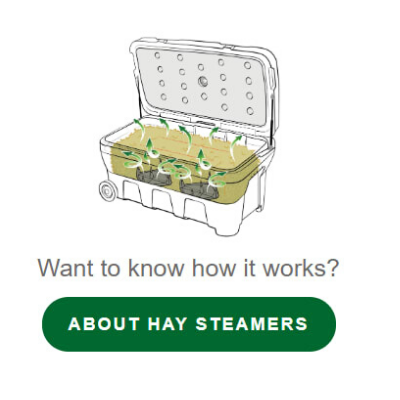Your Cart is empty
People and horses are living longer. The UK population is getting older and we also now see more older horses; it's not unusual to see horses in their twenties being ridden and even competing. These horses are essentially the equivalent of human pensioners. Dr Marlin discusses the main health issues associated with older horses.

Dr David Marlin
Scientific & Equine Consultant, 18/02/2020
What is an old horse?
We are all now used to the idea that life expectancy has increased dramatically in the UK over the past 100 years, from 52 years for a man and 57 years for a woman to 79 years and 83 years. The UK population is getting older and there are now around 18% of people over 65 years. We also now see more older horses; it's not unusual to see horses in their twenties being ridden and even competing. These horses are essentially the equivalent of human pensioners. This higher number of older horses in the horse population in general may be due to a combination of many factors including increased disposable income, better scientific knowledge and improvements in veterinary medicine, nutrition and dentistry.
We also need to mention terminology. In human medicine, “geriatric” is generally used for anyone over 65 years. In horse age, that’s probably equivalent to around 22 years. A variety of terms of often used, including aged, veteran and geriatric. The most common definition of a veteran in competitions are horses 15 years or over. And any horse over 20 is thought to be “old”. Senior is another term we often see used.

Consequences of ageing
As with people, ageing eventually leads to deterioration in physical condition and health. Stiffness, respiratory disease, colic, liver disease, decreased ability to digest food, weight loss, loss of muscle, changes in coat, dental problems and hormonal related diseases such as Cushings.
As horses get older we also find that they have an increased need for certain Vitamins, especially Vitamins C and E. Vitamin E is an antioxidant vitamin and important for muscle, respiratory health, skin and immune function. Horses can only get Vitamin E from the diet and horse diets are generally low in Vitamin E, especially forages. As a result a supplement is usually warranted in older horses. Vitamin C is also an antioxidant vitamin that works in conjunction with Vitamin E. Vitamin C is the most important antioxidant protecting the lungs of horses. It is also involved in immunity but also important for healthy skin, blood vessels, bones and joints and wound healing. Horses can make vitamin C; something humans can’t do. For younger horses therefore the fact that forages are low in Vitamin C does not matter.
However, as horses get older they use more Vitamin C but also their capacity to produce Vitamin C decreases. This is especially true for horses with respiratory disease and or Cushings. So, older horses will usually benefit from a Vitamin C supplement. However, this should not be in the form of ascorbic acid (the form of Vitamin C in fruits and vegetables) as horses do not absorb this very well – when young and healthy they have no need to.
Ageing and Digestion
Digestion suffers in older horses for many reasons and this can be behind a loss of muscle and condition.
Dental problems can lead to decreased mastication (chewing) of food which can lead to an increased risk of impaction colic and reduced digestibility and an increased risk of Choke. Soft forages or feeds high in moisture are likely to reduce the risk of Choke. Reduced digestibility means although the horse eats the same amount he doesn’t get as much energy from it. So unless he eats more, he will loose weight.
Regular dental check-ups are therefore critical in older horses. Feeds such as micronised linseed are a great option for older horses as they are low in starch, provide energy in the form of oil and also provide quality protein but at the same time the fine ground meal requires less chewing and is easier to digest.

The Importance of Forage
Forage should still of course form the basis of the diet of the older horse. However, reduced ability to chew and high dry matter can be risk factors for impaction colic. Soaking and steaming hay are ideal ways to promote water intake. Soaking does however result in the loss of energy in the form of water soluble carbohydrates and minerals. Older horses may also be more susceptible to poor hygienic quality forages and so vessels used to soak hay should be kept scrupulously clean.
Steaming hay increases digestibility and moisture content and improves hygiene without nutritional compromise and is ideal for the older horse.
For the older horse that struggles to maintain condition, feeding a high dose protected live yeast probiotic is also a good option. This has the advantage of improving hindgut function and increasing the amount of energy the horse can extract from its forage without any major changes to the diet or any need for increased forage intake.
Respiratory Health
Respiratory health is often compromised in older horses. Years of breathing in stable dust takes its toll and the proportion of older horses that have equine asthma (RAO, COPD, heaves, broken wind) is much higher than in young horse populations. Low grade long term inflammation from breathing in dust in forage and bedding (moulds, bacteria, mites, physical dust, etc) can lead to chronic (ongoing) inflammation leading to mucus, cough and increased respiratory effort. Inflammation uses up Vitamin C and low Vitamin C leads to inflammation; a viscous cycle. Combined with a reduced capacity to make Vitamin C, this explains why older horses suffer more with respiratory disease. Whilst feeding a Vitamin C supplement to older horses is an important management step, ensuring good air quality is critical.
This many mean turning out as much as possible or stabling at time of low environmental air quality e.g. when tree, grass or flower pollens are high or when ozone or other environmental pollutants (e.g. PM10) are high. When stabled, using a low-dust bedding is essential (there is no such thing as “dust-free”, except in factories making electronic components 12 ) and feeding low-dust feeds and forages. Feeds can be damped. With forages there are three options: haylage, soaked hay and steamed hay.

Colic in the older horse
Colic is one of the most common problems of the older horse. Both ability to digest food and the ability to absorb nutrients are decreased in older horses. Gas colics can occur as a result of poor hygienic condition of forages. Impaction colics can result from poor chewing and low moisture content of forages. Reduced appetite and forage intake combined with a decreased integrity of the gastric mucosa (lining) are just two factors leading to an increased risk of gastric ulcers in older horses. Pain and discomfort from gastric ulcers may in turn lead to an increased risk of colic.
Cushings / PPID
This becomes more common in horses from 15-20 years onwards. Classic signs include a thick and rough coat that is slow to or fails to shed in Spring, increased thirst and water consumption along with more frequent urination and lethargy. Laminitis and weight loss may also occur. If you suspect PPID/Cushings then its essential to contact your vet for advice on diagnosis, treatment and management.
Summary
Ageing inevitably results in decreased athletic ability and an increase in certain health problems. Avoiding obesity or low body condition are important. Good quality forage is the basis of any diet and ensuring good hygienic quality is important to avoid challenging the horses GI, respiratory or immune systems. Forage with a high moisture content such as haylage, soaked or steamed hay is also important due to the increased risk of Choke and impaction colic in older horses. Older horses often have impaired digestive function and probiotics can be effectively used for GI support. Finally, older horses have an increased need for some vitamins and minerals, particularly Vitamins C and E and these can be supplemented to good effect.
How can Haygain help?
Haygain is committed to improving equine health through research and innovation in the respiratory and digestive health issues. Developed by riders, for riders, we understand the importance of clean forage in maintaining the overall well-being of the horse. Our hay steamers and ComfortStall are recommended by many of the world’s leading riders, trainers and equine veterinarians.




